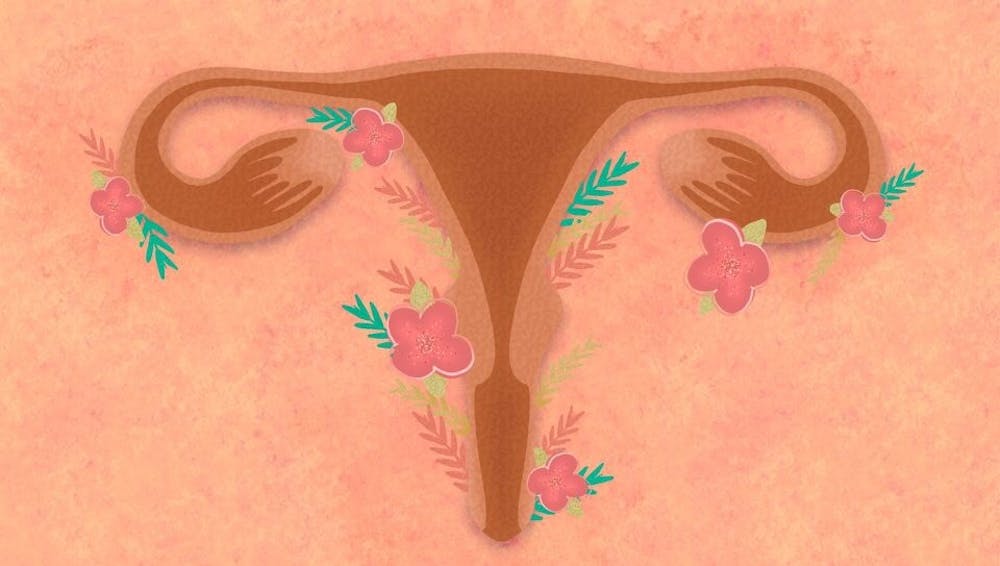The death of U.S. Supreme Court Justice Ruth Bader Ginsberg poses a serious threat to Roe v. Wade, the 1973 landmark case granting abortion rights to women. While her legacy as a long-standing advocate for gender equality and reproductive choice merits celebration, her vacancy weighs heavily on the future of reproductive rights.
In lieu of cruel state action regulating abortion rights, anti-abortion advocates should consider an alternative approach to reducing abortions: evidence-based, comprehensive sexuality education.
President Donald Trump once again fulfilled his promise to appoint anti-choice Supreme Court justices by nominating Judge Amy Coney Barrett on Saturday. She is Trump’s third nominee to the Supreme Court in less than four years, warranting a conservative shift that will govern generations to come.
“Six conservative justices opposing reproductive rights, LGBTQ+ rights, social justice and health care as a human right would put countless societal advances and numerous marginalized and oppressed communities in imminent danger,” the Guttmacher Institute said in a September 2020 Policy Analysis.
Anti-abortion advocates insist their opposition stems from wanting to save the lives of mothers and children. But research finds regulating abortion does not decrease the rate of abortion procedures or protect human lives. Rather, it leads to unsafe abortions and targets minority communities already marginalized by systemic healthcare inequities.
Researchers and policymakers have long examined factors resulting in high pregnancy and sexually transmitted infection rates among teens in the United States. Their traditional recommendation is abstinence-only education to delay the onset of youth sexual activity before marriage.
Federal law notes the purpose of abstinence-based programs must be to teach that “a mutually faithful monogamous relationship in the context of marriage is the expected standard of human sexual activity” and “that sexual activity outside of the context of marriage is likely to have harmful psychological and physical effects.”
Between 1996 and 2018, Congress poured $2.1 billion in taxpayer dollars to abstinence-based programs. Of the 39 states that mandate sex education, 37 of them require information on abstinence and 20 states require information on contraception. Only 17 states require medically-accurate information, and just three states prohibit the promotion of religion.
The most damning sex education requirements fail to address students’ diverse identities, experiences and behaviors.
“Nine states require the program to provide instruction that is appropriate for a student’s cultural background and that is not biased against any race, sex or ethnicity,” the Guttmacher Institute said. “Seven states require only negative information to be provided on homosexuality and/or positive emphasis on heterosexuality.”
Unfortunately, these requirements reflect a sobering truth — sex education programs are intentionally designed for and by white, cisgender, heterosexual, able-bodied people. Their limited perspective ejects young LGBTQ+ people and people of color from the conversation entirely.
Currently, less than 40% of all high schools and 14% of middle schools in the U.S. provide sex education curriculum that address all 19 of the CDC-identified topics imperative to healthy sexual development.
Due to our investment in abstinence-based curriculum, the United States reigns as the leader in teen pregnancy and birth rates among developed nations.
Comprehensive sexuality education, however, provides an alternative to the lack of efficacy and harm committed by abstinence-based programming. By definition, CSE acknowledges sexuality holistically as an integral component of one’s physical and socioemotional development and equips young people with the knowledge and skills necessary to develop positive views on sexuality.
The approach outlines reproductive development, the use of contraception to prevent unintended pregnancies and barrier methods to prevent the spread of sexually transmitted diseases. It encourages discussion regarding gender identity and sexual expression, healthy peer relationships, consent and critical decision-making skills.
Further, the effectiveness of CSE programming relies on our ability to put marginalized youth at the forefront of curriculum, with the intention of eliminating disparities and dismantling the webs of oppression that cause them.
When we invest in inclusive CSE, we create a safe environment that validates young people’s lived experiences and allows them to ask questions without fear of judgement. We tell young people it’s okay to make informed choices about their bodies, maintain meaningful relationships and express their sexuality in ways that align with their values.
“Such programs can help young people delay intercourse, reduce the frequency of intercourse, reduce the number of sexual partners they have and increase their use of condoms and other contraceptive methods when they do become sexually active,” said the Sexuality Information and Education Council of the United States.
Lawmakers promote anti-choice legislation and abstinence-based sex education, not founded on public health research, but as an indoctrination of their conservative and religious values. They deny youth their right to critical sexual health information, instilling fear and shame toward our bodies, needs and desires.
Federal funds must be redirected to CSE efforts and away from programs focused exclusively on abstinence. Our bodily autonomy and reproductive freedom depend on it.
Peyton Jeffers (she/they) is a senior studying human development and family studies and human sexuality. She is a member of Camp Kesem at Indiana University.






